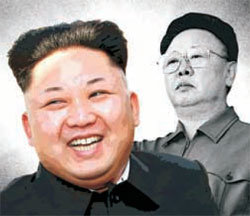Revisiting Zhongguancun in seven years
Revisiting Zhongguancun in seven years
Posted March. 29, 2018 08:12,
Updated March. 29, 2018 08:12

North Korean leader Kim Jong Il visited Beijing's Zhongguancun High-tech Zone, which is similar to Seoul's Yongsan Electronics Market, for the first time in May 2000. Amid a deep economic crisis, North Korea was highly interested in information technology (IT). The hermit nation believed it could develop software with personnel that could write programs and a few computers without having to invest raw materials. The former North Korean leader also visited an IT research complex in the Pudong District of Shanghai in 2001, and believed fostering the IT industry as key to the North’s so-called “once and for all leap” for economic recovery.
The Zhongguancun, which is adjacent to Peking University and Tsinghua University, benchmarked the Silicon Valley of the United States. China designated its high-tech hub, which used to sell “imitation” electronic goods, as its first high-tech industrial complex in 1988. Lei Jun, founder of Xiaomi, named his company after Chinese porridge xiaomi zhou he used to eat in a small studio in Zhongguancun. The small hotel room, where Alibaba’s Ma Yun started an entity that provides Internet search technology, is also located in the so-called Chinese Silicon Valley.
North Korea, which dreamt of its version of Chinese economic reform, benchmarked neighboring countries. The role model of its Rajin-Sonbong special economic zone is Singapore, which made economic development under the long-lasting dictatorship of Lee Kuan Yew. The Sinuiju Special Administrative Region, which was designated in September 2002, also benchmarked Hong Kong’s "one country, two systems" principle and China’s Shenzhen special economic zone, but they all failed. “No one who would invest in North Korea where there exists no law and system that guarantees the safety of investment,” said the late Kim Jong Nam, who was the step brother of North Korean leader Kim Jong Un, during an e-mail interview with a Japanese media.
Kim Jong Un visited on Monday Zhongguancun where his father Kim Jong Il last visited in 2011. The Chinese high-tech hub, which was visited by the North Korean leader in seven years, transformed from the center of the IT industry to the heart of the Chinese economy, where some 20,000 high-tech corporations of artificial intelligence (AI) and big data are clustered. Last year alone, about 110 billion yuan (about 19 trillion won) of venture investment was fulfilled in Zhongguancun, a place full of talented people from all over the world. If North Korea, which does not have a consumer market or talented people, fails to gain the trust of foreign capital, it would not be able to reap fruitful results in the path of following China.
Se-Jin Jung mint4a@donga.com




![17년 망명 끝에, 부모 원수 내쫓고 집권[지금, 이 사람]](https://dimg.donga.com/c/138/175/90/1/wps/NEWS/IMAGE/2026/02/18/133376197.3.jpg)

![[속보]美대법원, 트럼프의 국가별 상호관세 ‘위법’ 판결](https://dimg.donga.com/c/138/175/90/1/wps/NEWS/IMAGE/2026/02/21/133392930.1.jpg)
